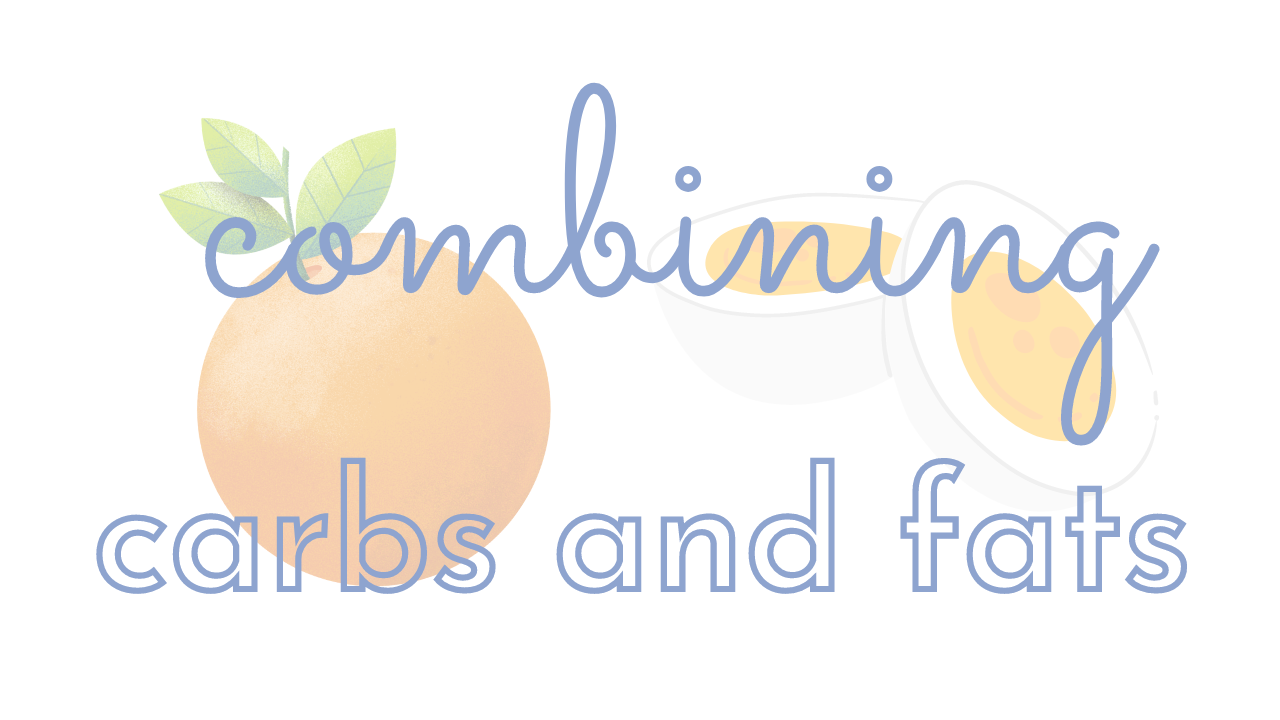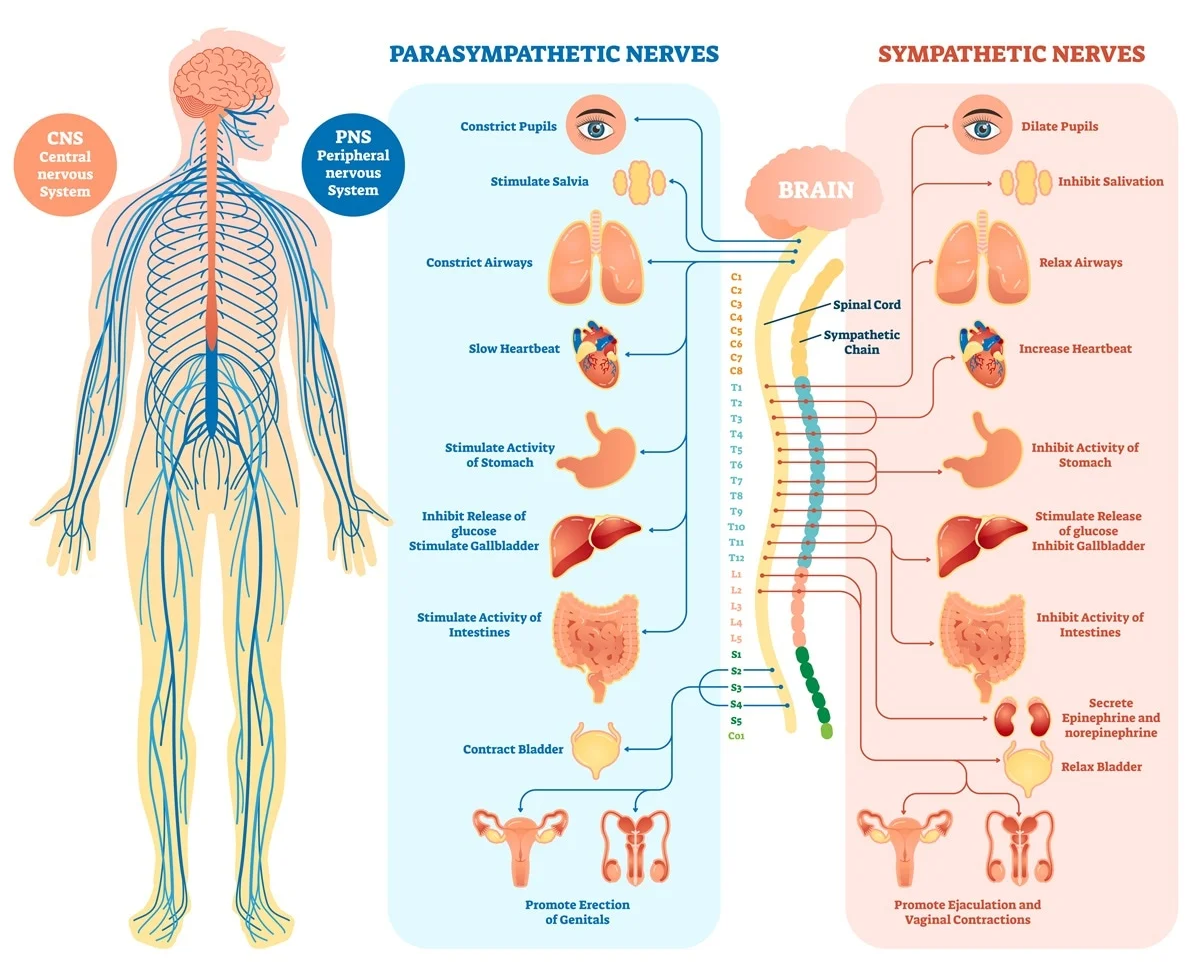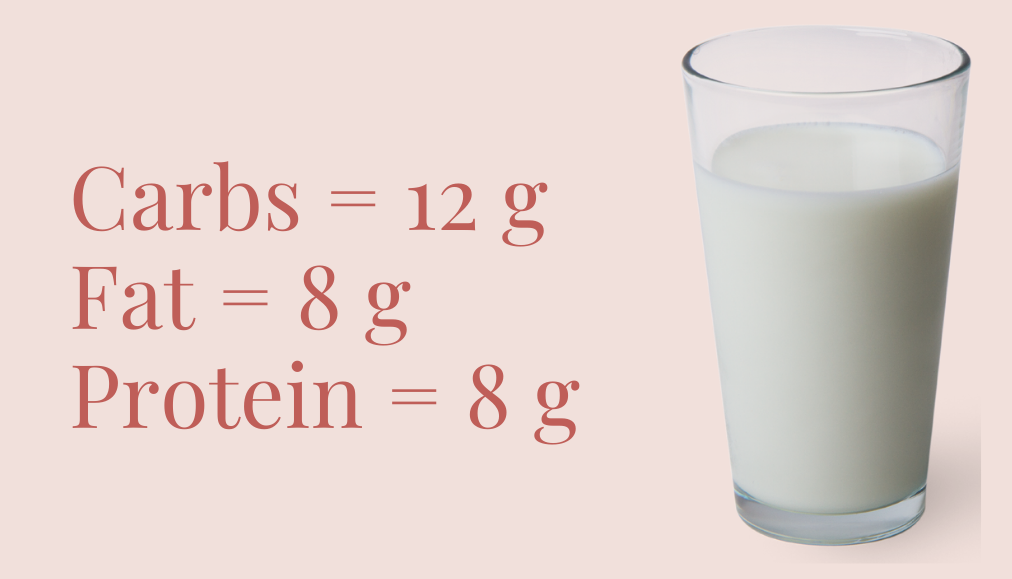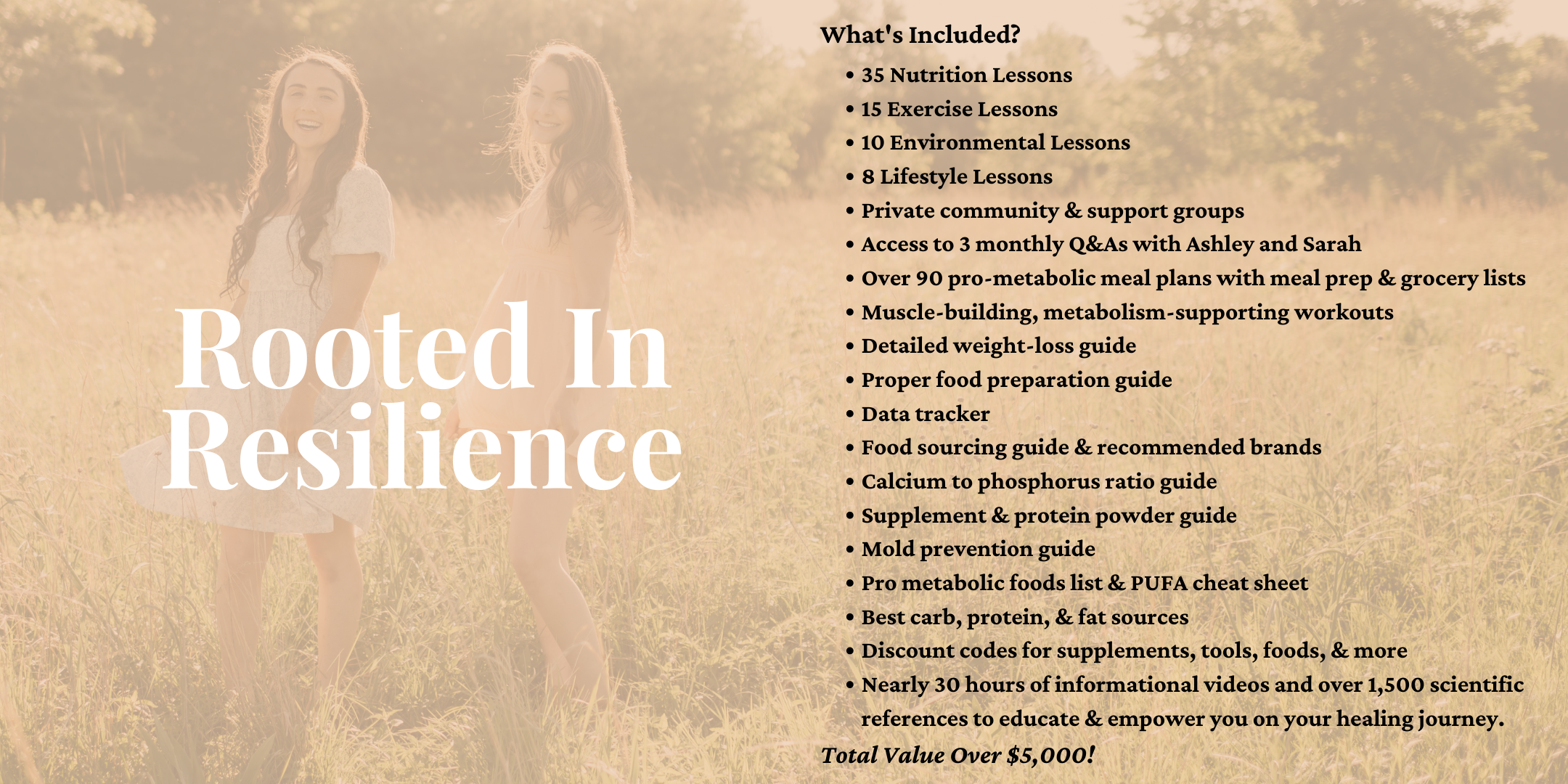Combining fats and carbs together - the Randle Cycle
May 21, 2023
Will I instantly gain fat if I eat carbs and fat together at the same meal? Will this lead to diabetes? Do I need to somehow magically separate my carbs and fats to separate meals?
These thoughts are all fear-based, and come from both sides of the nutrition world: vegans/fruit based (high carb, low/zero fat) and carnivore/low carb.
But living in fear is not living at all!

This fear comes from the frequently discussed concept - the Randle Cycle, which refers to the principle that a single cell can only use carbs OR fat for energy at any given time.
Yes, the Randle Cycle is real - "The glucose-fatty acid cycle, also termed the Randle Cycle, describes the allosteric regulation of energetic substrate selection in which products of fatty acid oxidation inhibit glucose utilization for energy production." (ref)
Essentially - increased 'fat burning' inhibits 'carb burning' via the Randle Cycle on a cellular level.
But I think people misinterpret this principle far too often, leading to fear, anxiety, confusion, and thus stress, moving health in the wrong direction.
More specifically, the Randle Cycle often has a negative connotation, that it is somehow a bad thing.
Quite the contrary - it is an incredible, intelligent mechanism that allows fat to be used efficiently in certain tissues in order to spare glucose for the tissues that require it for day to day operation.
So, first point - thankfully, we are not single celled organisms.
Our body is an incredible system with different cells, tissues, nerves and organs that all work together in a coordinated effort. And different fuel sources (carbs vs. fats) are used in different organs at the exact same time.

For example, as you are sitting here reading this newsletter, your brain is using carbs (or carbs + ketones) for fuel, and your muscles (at rest) are using fat for fuel.
You body has this incredible ability to partition fuel sources to the different tissues throughout the body.
Certain organs prefer fat as a fuel source:
- heart
- muscles (when at rest or low intensity movement)
And then certain parts of the body can only run on carbohydrates:
- central nervous system
- red blood cells
- thymus and various gonads
- brain (ketones can supply up to ~70% of the energy demand with a low/zero carb diet. Otherwise, 100% of the energy is made from glucose for the brain)
- muscles during strength training
Note: the above is not an exhaustive list. But I think you get the point - various fuel sources are used throughout the body at the same time, and this changes throughout the day.
The macronutrient profile of milk really helps drive this point home - as milk is one of the most nutrient-rich superfoods there is, and humans have utilized it for thousands of years for survival. It contains both carbs and fat, and this did not lead to diabetes formation when your Great Grandma milked her cow in the backyard.

So no, eating carbs and fat together does not automatically lead to fat gain. No, eating carbs and fat together is not automatically going to give you diabetes. Do not fear eating fruit with eggs or steak.
The body is designed to utilize both fuel sources.
Now OF COURSE there is always nuance, so here are some important points:
- The relative amounts of carbs and fat in a given meal (and in a given day) can certainly impact energy levels, digestion, and body composition. But the amount of fat and carbs you consume in a given day will be person dependent. There is not a single macro split that will work for everyone - this requires some personal experimentation.
- The combo of carbs and fat makes food taste good! And this isn't inherently a bad thing, as we should enjoy how our food tastes. You don't have to 24/7 struggle to be healthy. BUT, this carb + fat combo does make it easier to overeat. So for individuals who aren't very active or are overweight, you should be mindful of the total amount of food you are consuming.
- The type of fat and carbs you eat matters. Your body is going to utilize the energy from a meal that contains fruit (carb) and butter (fat) - plus of course a protein - better than a meal that contains cereal made with glyphosate-rich, iron fortified flour (carb) and vegetable oils (fat, high in PUFAs). Saturated fat >> PUFAs.
- Tracking your total daily macronutrient intake (on an app like Cronometer) can be a very valuable tool to develop some sort of baseline and normalcy (especially if weight loss is your goal!) "You can't expect to go anywhere if you don't know where you are coming from" - Dr. Ray Peat. Once you know your baseline, you can tweak things to see how you feel and respond.
- If you currently eat high fat and are looking to add some carbs in, you should slowly add in carbs while slowly reducing fat. But the goal is not zero/super low fat. The goal is finding a balance that works for you where you don't over consume food for your needs.
Now I am not giving you the go ahead to just go eat a bunch of packaged and processed food (that are commonly high in both carbs and fats).
My hope is to help you let go of this unnecessary fear - you have a lot of other things to worry about in your life.
Food awareness >> Food Fear.
The above is something that we are all about, and is the reason why we created our course - Rooted in Resilience. A course where you can better understand nutrition and physiological principles to move past unnecessary fear mongering, and start living your life (with a health-forward focus).

"Nothing in life is to be feared, it is only to be understood. Now is the time to understand more, so that we may fear less." - Marie Curie

